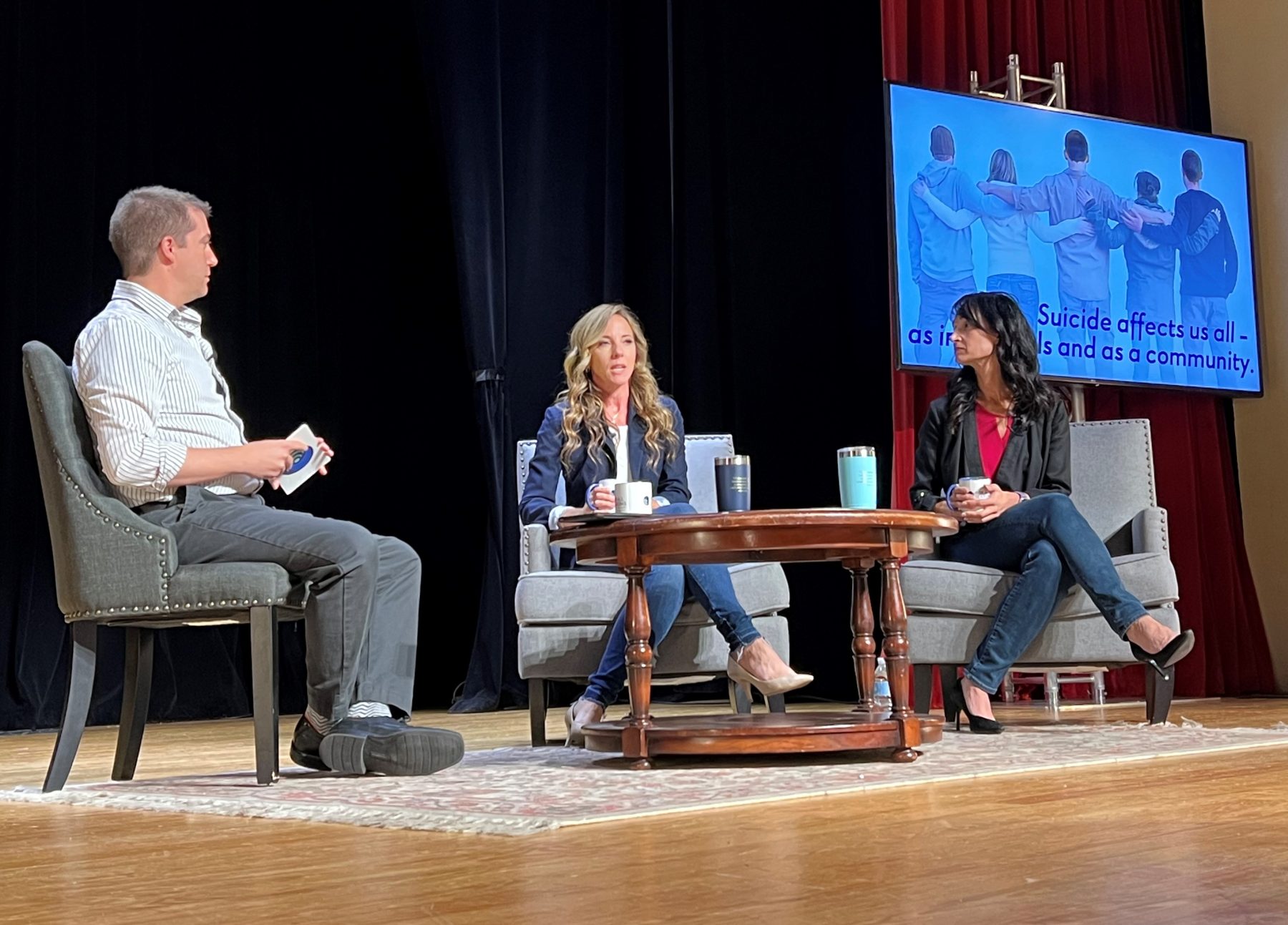In the News

Highlights of Community Conversation on Suicide
A nice crowd joined us at the Avalon Theatre and online for our community conversation, “Life is Better with You Here: A Community Conversation about Suicide Prevention.” CEO Beth Anne Langrell, Chief Clinical Officer Lesa Lee, LCSW-C, and moderator Bruce Grove, QACTV, shared practical strategies and tips for reaching out to those who are struggling with suicidal thoughts.
The conversation began with the acknowledgment that most people in the room had been impacted by suicide in some way, either directly or indirectly, and explored the impact suicide has had on the community as a whole. Beth Anne shared a concept that she and Lesa learned through their training by Brené Brown as Dare To Lead© Program facilitators, “One of the things that Brené says is that what we all need is human connection. Our brains are hardwired for connection. And what we know is that for each of us sitting in this room, when we peel away all the layers, what we want is to be seen, heard, and valued. When one of those things is missing, it makes a difference.”
“And so part of this conversation is about how can we, as a community, lean into the thought that if every single person who could start and end their day and feel that they were seen and heard and valued, imagine what our community would look like.”
“Our job at For All Seasons is to help you live your best life and to find hope. And the No Matter What … You Matter campaign is as simple as it sounds. We want our community to be leaning into what is happening, no matter what situations have happened in the past, it’s okay. And there is hope. And there is an opportunity to be able to talk through whatever is happening,” she explained.
Lesa shared, “My first invitation to you all would be to acknowledge that everyone is going through something. We don’t know what somebody is experiencing behind closed doors . . . and to recognize that everyone is not necessarily living a good life, which is what things look like sometimes on Facebook and other social media. It can look like this picture-perfect place, when in reality, sometimes we’re struggling and we just don’t know how to communicate that.”
She explained that sometimes people who struggle with suicide are afraid to be seen struggling because they don’t want anyone to know that they’re suffering and provided ways to communicate with people when this happens. One of the tips she mentioned is paying attention and noticing changes in our loved ones’ behaviors – as an important first step in suicide prevention.
Beth Anne added the next step is asking the question, “How are you doing” and sticking around to listen to the answer, and if you don’t get an answer, circling back with someone later. She stated, “It’s our responsibility as a community, to be responsible for our circle. Regarding suicide prevention, our responsibility to one another is to ask the question, listen, and then share the resources that we have within our community. We’re all busy, we all have things that are going on, but we need to find that time that you can connect with somebody who may be struggling. . . And sometimes it’s about showing up more than once – showing up time and again.”
Lesa shared with the audience that asking about suicide does not put the idea of suicide in someone’s head. Research shows that asking the question is not going to cause somebody to feel suicidal. She added, “And in fact, it often is a relief for the person who is feeling suicidal, that they can maybe share that.”
For people suffering from suicidal thoughts, Lesa offered, “We want to offer hope that there is a way and that we can help with pain and suffering. Because no one wants to live in that space. There is a way and you might have to try several clinicians because there will be somebody there that can help you.”
Beth Anne concluded, “So the more we talk about it, and the more we share about what is happening, the more that we recognize that we’re not alone in the conversation – the better we can address this issue.”
If you or someone you know needs help, reach out. For help throughout Eastern Shore, call For All Seasons 24-Hour Crisis Hotline: Text: 410-829-6143 I English: 410-820-5600 I Español: 410-829-6143
For help throughout Maryland and the United States Crisis Hotline dial: 988.
